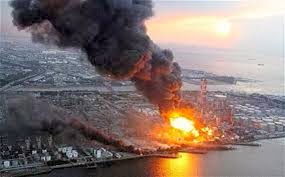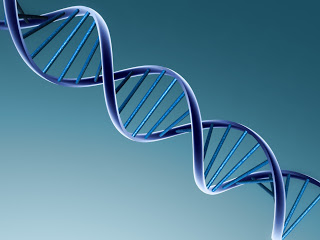With the recent Fukushima disaster (pictured above), the topic of nuclear disasters is at the forefront of all of our minds. Nuclear accidents are a terrible tragedy on so many levels, from the damage done to the environment, to the effects on wildlife, the people, the society, and the economy of the country affected. Once the initial period of damage control and clean up is tended to, the work and surveillance of the population from a health standpoint has only just begun. A recent article in the Canadian Medical Association Journal provides a poignant reminder of this fact.
The article by Dmytriw and Pickett describes the case of a man who developed a glioblastoma brain tumor which occurred 24 years after his exposure to the Chernobyl nuclear disaster in 1986. The Chernobyl power plant disaster remains the worst accident at a nuclear power plant in history, resulting in radioactive fallout covering large parts of the western former Soviet Union. While the studies in the 4 years after Chernobyl found an increased incidence of leukemia, thyroid cancer did not show to be significantly increased until 16 years after the Chernobyl accident, at which time the risk was found to be 4.3 times that of the general population. These papillary thyroid cancers were also found to be more aggressive in their behavior than typical papillary thyroid cancers.
Going beyond this time frame into today, now 27 years after Chernobyl, it is hard to quantify the risk of tumors caused by Chernobyl, as follow up of people who lived in the affected area becomes very difficult. An increased risk of breast cancer and brain tumors has been suggested, but difficult to prove definitively. In terms of distance from Chernobyl that can put a person at risk, the United Nations Scientific Committee on the Effect of Atomic Radiation (UNSCEAR) has indicated that individuals who lived as far as 2,000 km away from Chernobyl may develop cancer beyond the minimum latency times normally associated with exposure to radiation.
The bottom line? As health care providers, we must remember to ask about exposure to nuclear accidents, remembering that tumors can develop more than 20 years after exposure. If you are a person that has been exposed to a nuclear disaster such as Chernobyl or Fukushima, make sure your health care providers over the long term are aware.
Finally, cases of cancer that arise among people who were exposed to nuclear accidents should be reported to the appropriate authority, with the patient’s consent.
The Fukushima Registry for cases of cancer amongst people who were living in Japan at the time of the Fukushima disaster is accessed by emailing ftiiki@fmu.ac.jp.
The Chernobyl Registry for cases of cancer amongst people who were living in Ukraine, Belarus or Russia around the time of the Chernobyl disaster is accessed by emailing info@nrer.ru (for Russia or Belarus) and moz@mov.gov.ua (for the Ukraine).












